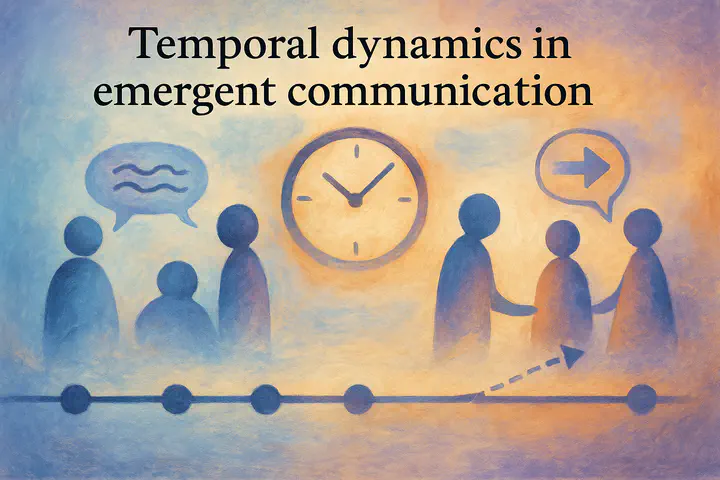 Image credit: DALL·E 3
Image credit: DALL·E 3Abstract
Emergent communication is an approach designed to enhance the communicative capabilities of agents in multiagent systems. Unlike traditional multiagent communication fields, emergent communication allows agents to learn both the structure and content of their communication protocol with minimal constraints on character sets or vocabularies. This flexibility enables the development of more efficient, adaptable, and environment-specific languages compared to hand-crafted protocols. In this thesis, we identify a significant gap in the existing literature on emergent communication, specifically the lack of exploration of temporal dynamics of emergent languages. To address this, we investigate three dimensions of temporality in emergent communication. First, we examine the influence of communication duration on agent behaviour in a social deduction game called Werewolf, by allowing agents to communicate for varying lengths of time. Our findings reveal that agents develop unexpected strategies and that our modifications enhance their ability to converge on a common language. Second, we study the emergence of temporal references, or words indicating relative positions in time. We introduce a novel environment where agents must communicate about temporal relationships within a dataset. The results demonstrate that agents can learn to reference different time steps to solve the environment successfully. Third, we explore how agents communicate about local spatio-temporal relationships within a single observation. The results not only show that the agents learn to communicate about such relationships, but also that this language can be human interpretable. The contributions presented in this thesis pave the way for more efficient and adaptable protocols in multiagent communicative settings.